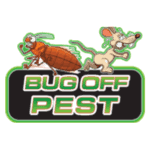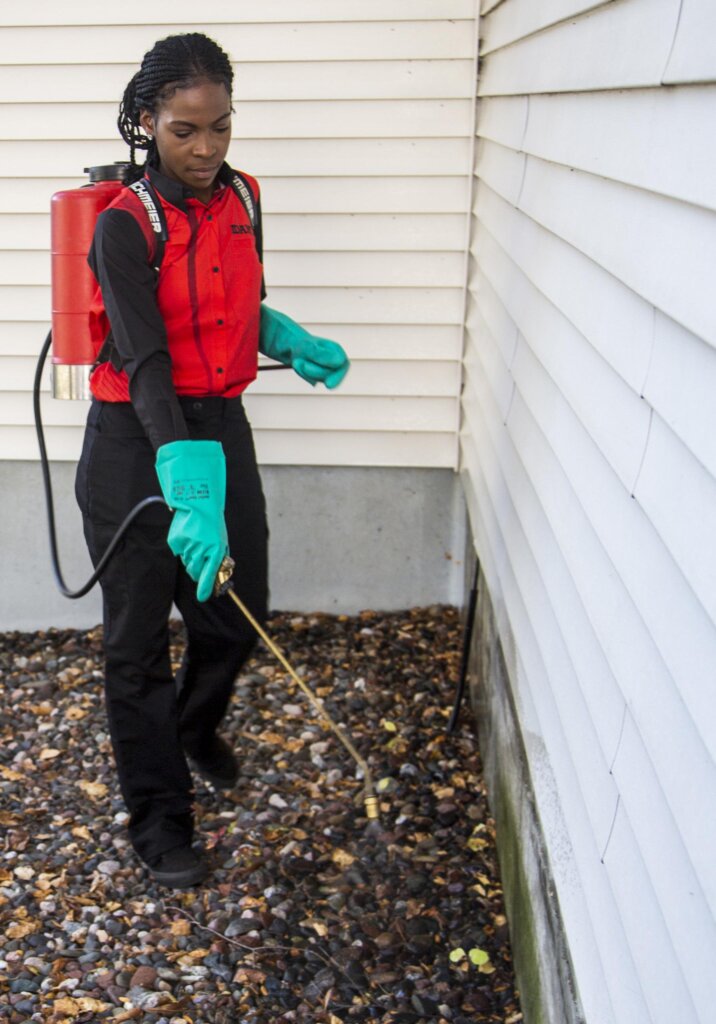Same-day and effective Pest Control in Port Charlotte for your home’s safety.
Discovering Cutting-edge Techniques and Products for Efficient Parasite Control
The landscape of bug control is progressing, marked by the emergence of cutting-edge strategies and items developed to boost performance and sustainability. From clever catches geared up with sophisticated tracking systems to biological methods that use natural predators, these innovations provide a paradigm shift in exactly how we come close to pest administration. Green chemical choices and scent disturbance techniques provide targeted services that straighten with environmental stewardship. As the market comes to grips with these advancements, a closer examination exposes not only their effects yet also the possible obstacles that may emerge in their execution.
Smart Traps and Checking Systems
Exactly how can contemporary technology enhance parasite management? One considerable advancement is the advancement of clever catches and keeping track of systems, which provide real-time data and analytics for reliable insect control. These systems make use of sensors and wireless innovation to discover insect activity, informing residential property supervisors and parasite control professionals to infestations prior to they intensify.
Smart traps are furnished with features such as lure terminals that bring in pests and record them effectively. These catches can be monitored from another location, enabling timely treatments and reducing the requirement for comprehensive chemical applications. In addition, the integration of artificial intelligence formulas enables these systems to separate between target pests and non-target varieties, improving the precision of bug control procedures.
In addition, the information accumulated from wise catches can be examined to identify patterns in bug behavior and environmental elements adding to invasions (Pest Control in Port Charlotte). This details is important for developing targeted pest monitoring approaches tailored to particular atmospheres. By accepting clever catches and keeping track of systems, bug control experts can boost their functional performance and decrease the environmental impact of parasite management, inevitably resulting in more secure and much more lasting techniques in the industry
Biological Parasite Control Techniques
Making use of natural predators and parasites, organic parasite control approaches use an environmentally pleasant alternative to chemical therapies. This method includes the introduction or improvement of particular organisms that can normally control insect populations, therefore reducing dependence on artificial chemicals. Usual examples include making use of ladybugs to control aphid infestations and parasitic wasps to target caterpillars.

Organic control can be categorized right into three primary techniques: classic, augmentative, and conservation. Classic biological control entails importing natural enemies from the pest's indigenous environment, while augmentative control includes increasing the population of existing all-natural adversaries through launches. Preservation techniques concentrate on producing conditions that sustain these useful microorganisms in the community.
It usually requires a comprehensive analysis of parasite characteristics and the life cycles of both the pests and their natural adversaries. As awareness of environmental concerns grows, organic insect control approaches are significantly recognized for their sustainable role in incorporated insect administration programs.
Eco-Friendly Chemical Alternatives
Environment-friendly chemical options offer a sensible remedy for parasite monitoring that reduces ecological impact while efficiently controlling insect populaces. These choices are originated from natural resources and are very my company carefully created to target certain bugs without hurting advantageous organisms, making them a necessary part of sustainable pest control approaches.
Amongst the most reliable environment-friendly choices are plant-based pesticides, such as neem oil and pyrethrin, which are obtained from the seeds and blossoms of various plants. These substances disrupt the life process of parasites, decreasing their populations without the hazardous results associated with traditional chemicals - Pest Control in Port Charlotte. Furthermore, essential oils like peppermint and clove oil show repellent homes, even more enhancing their energy in bug administration

Moreover, environmentally friendly chemical options often break down faster in the environment, decreasing the threat of dirt and water contamination. This characteristic aligns with the boosting customer demand for sustainable techniques in farming and metropolitan insect control. As research study remains to development, the growth of cutting-edge environment-friendly formulas will even more enhance efficiency and expand application areas, allowing pest administration experts to adopt greener, a lot more accountable techniques in their methods while great site guarding human wellness and the atmosphere.
Scent Disruption Strategies
An additional ingenious strategy in lasting bug monitoring is making use of scent disruption methods. These approaches make use of the natural chemical signals, or scents, that bugs use for communication, particularly in mating behaviors. By disrupting these signals, parasite populaces can be successfully handled without turning to dangerous chemicals.
Pheromone traps are commonly employed in this approach. These traps make use of artificial versions of insect pheromones to tempt male pests, consequently decreasing their ability to situate ladies and recreate. Over time, this can lead to a substantial decrease in insect populaces. In addition, the release of repellent scents can develop confusion among pests, better hindering their mating processes - Pest Control in Port Charlotte.

Integrated Insect Administration Strategies
Efficient bug control frequently needs a thorough method, and Integrated Bug Monitoring (IPM) techniques supply a structure for achieving this goal. IPM incorporates numerous management methods to lessen pest populations while minimizing reliance on chemical pesticides. This diverse approach begins with extensive surveillance and recognition of insects, enabling targeted interventions based upon details pest pressures.
Cultural practices, such as plant turning and hygiene, play an essential duty in preventing pest establishment. Biological controls, including all-natural killers and parasitoids, are link used to keep pest populaces at convenient degrees. When essential, discerning chemical therapies are used, highlighting reduced toxicity to non-target types and the environment.
Furthermore, education and outreach are integral components of IPM, advertising awareness amongst stakeholders concerning lasting methods and pest life process. The flexibility of IPM permits experts to react successfully to transforming parasite characteristics and environmental conditions. By using this all natural technique, IPM not only enhances parasite control effectiveness however also adds to long-lasting ecological equilibrium. Inevitably, Integrated Insect Management stands for a forward-thinking service that aligns farming efficiency with environmental stewardship, making it crucial in modern insect control strategies.

Final Thought
In final thought, the assimilation of cutting-edge techniques and products for efficient insect control represents a substantial innovation in lasting pest management. Smart traps and keeping an eye on systems, biological pest control approaches, environment-friendly chemical alternatives, and scent interruption methods collectively boost the efficiency of insect management techniques.